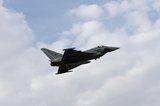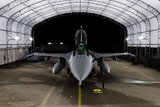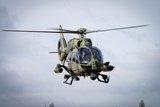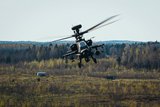General Atomics to work on French Reapers
General Atomics Aeronautical Systems has been awarded a maximum $27.8 million FMS contract from the US Air Force Life Cycle Management Center.
The deal covers continued weaponisation and FMS Pod integration for MQ-9 Reaper Block 5 UASs operated by France. General Atomics received a similar $8.9 million contract in November 2019.
The company is expected to complete work on the new contract by 30 September 2021.
According to Shephard Defence Insight, France has ordered 12 MQ-9s in all. Five of the six delivered to date remain in service.
Shephard reported in 2019 that the French Air Force intends to arm its Reapers with GBU-12 Paveway II laser-guided bombs, to aid counter-insurgency efforts in West Africa.
As part of our promise to deliver comprehensive coverage to our Defence Insight and Premium News subscribers, our curated defence news content provides the latest industry updates, contract awards and programme milestones.
Related Programmes in Defence Insight
Related Equipment in Defence Insight
More from Air Warfare
-
![Why the F-16 fighter jet remains a force to be reckoned with (updated 2026)]()
Why the F-16 fighter jet remains a force to be reckoned with (updated 2026)
The Lockheed Martin F-16 fighter jet remains in the limelight more than 40 years after its first flight. Shephard sums up the latest developments and details everything you need to know about the aircraft in 2026.
-
![Airbus Helicopters sees defence portfolio’s “strong momentum” continue into 2026]()
Airbus Helicopters sees defence portfolio’s “strong momentum” continue into 2026
The aerospace company’s 2025 performance figures revealed significant orders from various European armed forces and a boost in demand for its uncrewed offerings.
-
![Singapore Airshow 2026: Early adopters and big spenders point to UAV market opportunities]()
Singapore Airshow 2026: Early adopters and big spenders point to UAV market opportunities
While an estimated $37.99bn is still to be awarded across the Asia-Pacific uncrewed aerial vehicle market, the balance of potential future spending is unevenly split between various countries, with significant opportunities to be found in the collaborative combat aircraft space.
-
![British Army ACP project progresses with contract selection expected March 2026]()
British Army ACP project progresses with contract selection expected March 2026
Known as Project Nyx, the loyal wingman developed from this initiative will accompany the Apache 64-E and be used to complement tanks and artillery.























